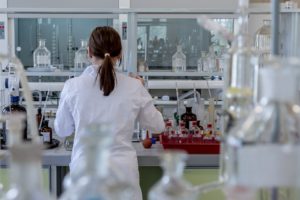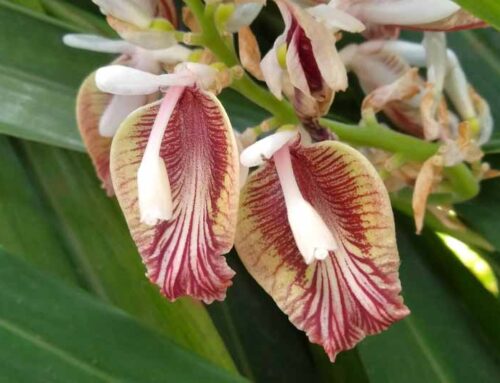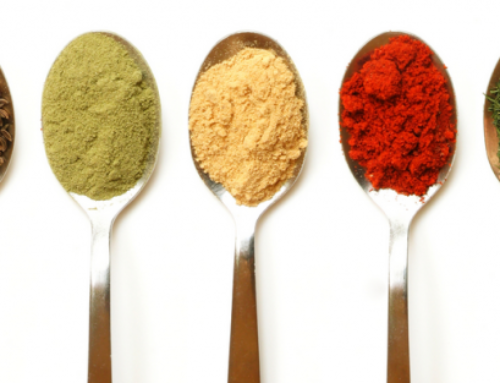
Probiotics are a common topic of discussion as of late, mostly related to intestinal health. Now there is research suggesting the use of probiotics can alleviate sinus infections. According to Susan Lynch, Associate Professor of Medicine at UCSF, chronic sinus sufferers have less biodiversity in their noses than healthy individuals. The nasal cavities, like our intestines, need a variety of bacteria to maintain a healthy environment. If these bacteria are compromised by antibiotic use, antimicrobial nasal sprays or a weakened immune system, for example, the biodiversity is reduced. Remember not all bacteria are bad; if you take an antibiotic, it can’t differentiate between the bacteria that benefit your body and the ones that don’t.
Lynch, who was interviewed on NPR last Fall, studied the effects of inhaling probiotics into the nasal cavities. Her team studied mice induced with a sinus infection. This created a situation where the biodiversity in their noses was compromised. After inhaling lactobacillus, a species of bacteria naturally found in our bodies and often used in oral probiotics, the mices sinuses returned to normal.
In addition, Lynch spoke of a study involving 300 children who had rhinorrhea and/or upper respiratory problems. After being given an oral lactobacillus or bifidobacterium (both ‘probiotics’), their symptoms were reduced.
What does this all mean if you suffer from ongoing sinus problems? Unfortunately current regulations do not allow for probiotics to be marketed for inhalant use, but you might think of getting it to your nose through your gut. It’s worth a try. We have to remember, our bodies aren’t isolated parts put together. If you are unclear about how your digestive tract interacts with your nose, check out this blog written on GERD.
In addition, here’s another great article on the subject.






Is it safe to just inhale a powdered probiotic up your nose or to put some in a nasal spray? I am getting desperate to heal my sinuses!
Unfortunately there are no probiotic inhalants on the market. I would recommend our Sinus Rejuvenation Oil if you are dealing with chronic congestion. https://www.sinussupport.com/education/sinus-oil/ Please feel free to contact us with any more questions.
I have had a sinus infection for the last 4 years, nonstop! It was the result of taking too many antibiotics in my early twenties. Specifically horse-pill sized tabs of azithromycin, which killed all the good bacteria as well as the bad. I just recently tried inhaling a probiotic blend made by nature’s way labeled for children (http://goo.gl/Yi1TSN). The results were better than I ever dreamed. I put about the amount of one pill into a nasal spray bottle, filled it with DISTILLED water and shot about 6-10 pumps up into my nose EVERY night before bed for two weeks. I have not had any sinus problems since… No joke.
[…] Allergies […]
I have been battling what was diagnoses as chronic inflammatory response syndrome caused from an overexposure to mold. Now, any time that I am around an elevated level, an ongoing sinus infection becomes disabling. It is always there due to MaRCons and a thick biofilm that protects the bacterial growth from antibiotics. For three years, I have tried everything with no help from doctors. Rinses, shampoo, oregano oil, black walnut, apple cider vinegar, and one time it got so bad I snorted 3% Hydrogen Peroxide. But the infection just keeps coming. For the last 2 days I have been adding the probiotic powder from the capsules into distilled water and continuously flushing. It seems to be helping and I am getting bright yellow and green rubbery pieces to come down from way up in my head. I am going to stay with it and hope for the best.
I have had 3 severe sinus infections over the last two years, 2 of which I ultimately cleared up with antibiotics, after weeks of trying more natural means. For this third infection, the antibiotic did not work, and I happened to read this article on sinus probiotics as I was contemplating trying a different antibiotic the next day–it was night time and I was in a lot of pain. I immediately sniffed 1/4 capsule of refrigerated probiotic only in my left nostril and got immediate relief!! In 15 minutes, all pain was gone, and I felt almost normal. I have continued with this sinus probiotic treatment for a week now, and the pain has not come back. My naturopath doctor said to take 1/2 capsule,each nostril, morning and night–and that is what I am doing.
For me, this has been a miracle.
Mike, are u better?
I had a chronic nasal infection that has spread to create pain on the lefts side of my face. Eyes and even my teeth hurt!! But only the left side. I’ve also suffered for years with glue ear and other problems and recently found out I was lactose intolerant and now don’t have dairy. This nasal thing though was totally outta control with thick crusty orange crystals forming around my inner nostrils and really painful to remove resulting in a bloody nose. Now I have also been using a probiotic for thrush which is a lactbacilli strain. I wondered about using it in my nose! I read and read what’s out there and was so frightened to try this bacteria just in case I started the wrong sort of bacterial community in my Nostrills! As I was desperate I snorted the white powder just in my left nostril. The next morning after blowing my nose which was now liquid clear… I could breath clearer through my affected nostrill better than the normal one!! I can’t reccomend others doing this as its a bug respnsabilty. But I do wonder why we don’t have probos for our ears, nose and skin yet? Is it the pharmacudical industry keeping us out of the loop for riches?? Please someone somewhere research probiotics for the nose, ears and skin. I’m tempted next to put coconut yogurt in my ears hehe Peace x
[…] and a healthy balance of flora is an optimal environment. Probiotics can help your nose while research found people with chronic sinusitis problems show reduced biodiversity in their […]